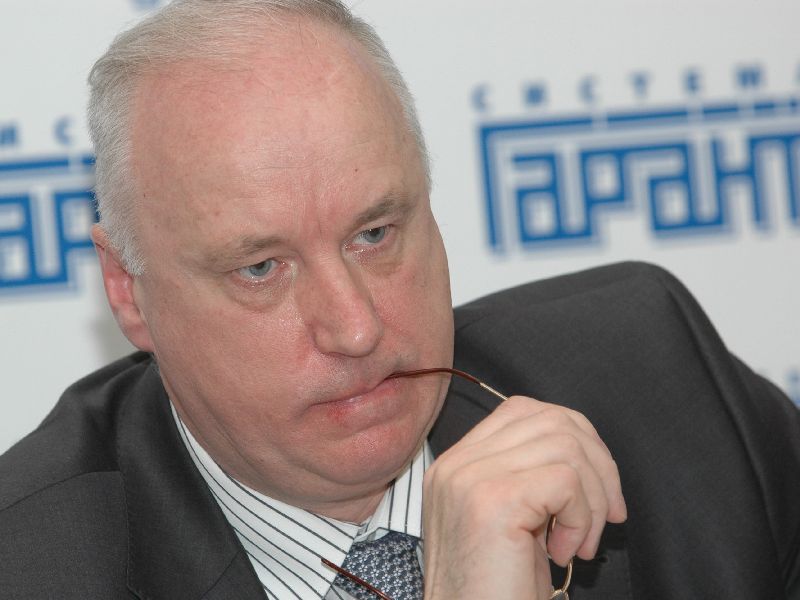
Train Bombing Part of North Caucasus Rebels’ Bid to Widen Insurgency
Publication: Eurasia Daily Monitor Volume: 6 Issue: 227
By:

A series of terrorist attacks on Russian railroads in November, including the bombing of the Nevsky Express, which killed 27 people, made many wonder who would take such bold actions in different parts of Russia. The incidents were officially characterized as terrorist attacks, which in itself is quite strange. When similar derailments have happened in the past, Moscow tried to downplay the possibility of terrorism by stating that technical failures were the probable cause (www.newsru.com, December 2).
From the very beginning there was the improbable story regarding the possibility that Russian nationalists were behind the Nevsky Express derailment. All references to the possible involvement of Russian nationalists did not hold up, given that tactics of that kind have long been used by the North Caucasian militants (www.vazhno.ru, December 4).
However, the attempted murder of the head of the Investigative Committee of the Prosecutor-General’s Office, Aleksandr Bastrykin, was left in the background. The day after the Nevsky Express train explosion, another blast went off at the site of the incident, where investigators from the Federal Security Service (FSB) and the Investigative Committee were working. It was later determined that this second bomb had been a remote control device that was activated by a cellular phone. This led the investigators to believe that the second explosion at the site of the train wreck might have directly targeted the investigative team (www.vesti.ru, December 1). Investigative Committee spokesman Vladimir Markin confirmed that Bastrykin sought medical attention in connection with an injury received in the explosion. According to some sources, it was concussion. Two other high ranking officials –the head of the Moscow Regional Investigative Transport Agency, Sergei Zabaturin, and the head of the Novgorod District Investigative Agency, Konstantin Karasev– reportedly also suffered concussions and other injuries (RIA Novosti, December 3). Thus, one may argue that it was a well-planned operation and its organizers targeted the high-ranking officials after the first explosion.
Just a few days after the derailment of the Nevsky Express, an official statement by the leadership of the armed forces of the Caucasus Emirate appeared on the rebel Kavkaz-Center website. The statement included claims that the derailment had been implemented with the knowledge of the leader of the North Caucasus militants, Dokka Umarov (www.kavkazcenter.com, December 2). One could have looked at it as another propagandistic demarche by the militants, had there not been a similar bombing of the same train on August 13, 2007, after which the militants posted a video about preparations for the terrorist attack and the actual bombing of the train online.
Then, the militants’ Riyadus Salikhin Reconnaissance and Sabotage Battalion officially claimed responsibility for the explosion (www.kavkaz.tv, October 9, 2007). The battalion was created by Shamil Basaev personally in order to undermine Russia’s interests outside of Chechnya. It seems that there is a fully-fledged combatants’ scheme, rather than isolated sallies to Russia. Maksharip Hidriev, a citizen of Ingushetia, was arrested and convicted in connection with the 2007 Nevsky Express bombing.
Commenting on the statement on last month’s bombing of the Nevsky Express, Chechen interior ministry representatives expressed doubts that Dokka Umarov had the capabilities to implement large-scale acts of terror either inside Chechnya or in other regions of Russia (www.chechnyatoday.com). There is nothing surprising in that statement. For months, Chechen police and armed forces, together with Russia’s FSB, have been trying to destroy the insurgent combat units along the administrative border between Chechnya and Ingushetia. Claiming that dozens of militants have been killed in those operations, the pro-Moscow authorities have been forced to present slain young people as killed militants. In reality, human rights activists have evidence that far from all of them had connections to the militants. Chechen President Ramzan Kadyrov has also voiced doubts that the Chechen militants or their leader Dokka Umarov, were involved in the derailment (Interfax, December 2).
This time, however, there is ample evidence of the involvement of Chechen separatists, and the theory that the train derailment was organized by the militants has become the key to the investigation (www.gazeta.ru, December 2).
During a meeting with First Deputy Prime Minister Viktor Zubkov, Prime Minister Vladimir Putin said that an attempted terrorist act on a railway in Dagestan was similar to the Nevsky Express derailment (www.grani.ru, December 1). Putin was referring to an explosion at the Izberbash-Inchh wayside station on the Mahachkala branch of the North Caucasus railroad, when passenger train 374 from Tyumen to Baku was derailed. Vladimir Markin reported that a criminal case had been launched regarding that incident and that those responsible would be charged with organizing a terrorist attack (www.dagestan.kavkaz-uzel.ru, December 1).
Meanwhile, in southern Russia, Dagestan’s Prime Minister Shamil Zainalov, had a meeting with his subordinates on the issue of railroad security in the republic (www.kavkaz-uzel.ru, December 2). A report on the railroad transport situation was prepared by Ashahan Magomedov, the Dagestani interior ministry official in charge of transportation security. According to him, there have been seven explosions on trains in Dagestan since July. “Almost all the explosions were implemented in the same manner: they were liquid explosives with identical components,” said Magomedov. He also talked about measures undertaken by the transport police together with railway officials aimed at preventing railway bombings. One may assume that the Dagestani militants for the most part target railroads running through Makhachkala and Derbent (www.riadagestan.ru, December 1).
Radio Liberty’s Andrei Babitsky believes that the blasts were not isolated actions, but rather part of the tactics of military resistance. He suspects that Dokka Umarov has brought the war to central Russia and that this conflict will last much longer than those during the period of Shamil Basaev’s activities (www.watchdog.cz, December 3). Putin’s statements on the situation in the North Caucasus during his annual televised call-in program on December 3 were contradictory. At first, he said that there is not even “a hint of war in the North Caucasus.” But then he stated that “the complex situation in the region could be explained by the operation of illegal armed formations, which at times feel themselves invulnerable.” Putin promised to fight them mercilessly until they are wiped out (Ekho Moskvy, December 3).
It is difficult to talk about success of the Russia’s siloviki today. The North Caucasus armed resistance has spread not only all over the region, but also to other parts of Russia. It seems that this might prove the main incentive for Vladimir Putin’s return to the presidency in 2012.




